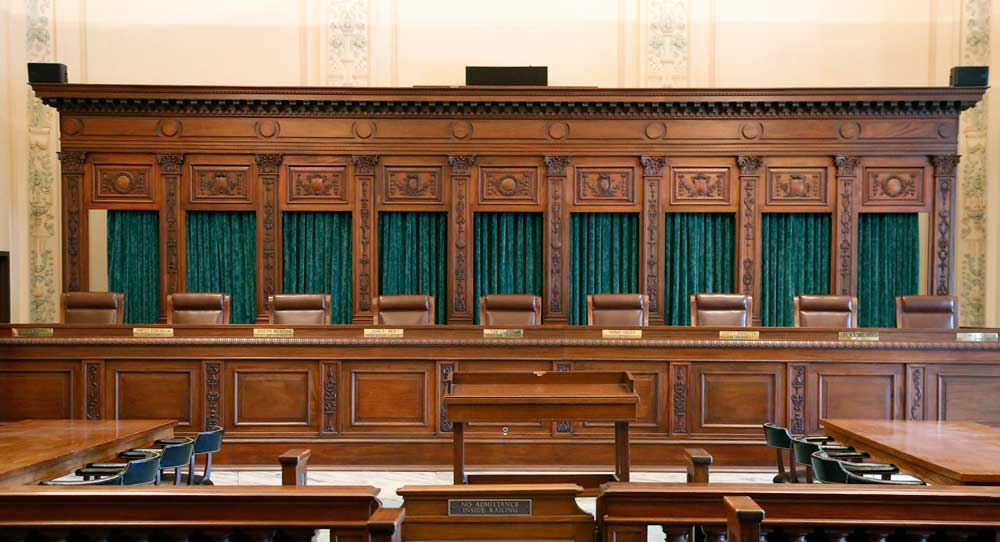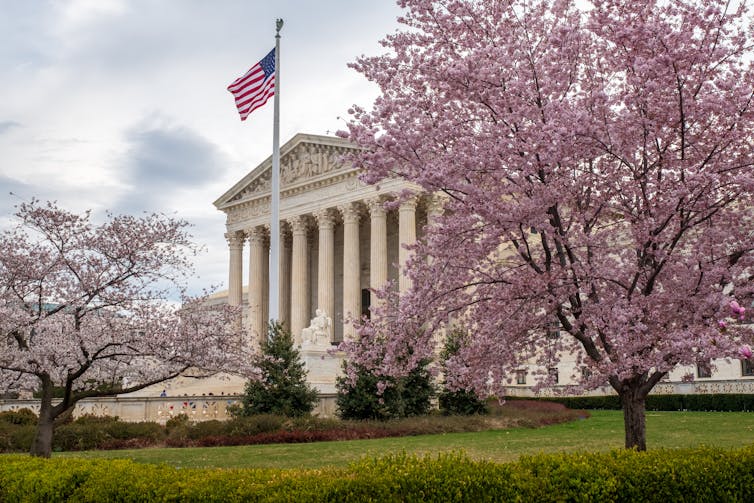
By Charles J. Russo
In Oklahoma, the start of the school year is just six weeks away. But one closely watched school that had planned to open in 2024 is now in limbo: St. Isidore of Seville Catholic Virtual School, a tuition-free, online, K-12 institution.
St. Isidore received a controversial go-ahead from a state school board in 2023. Like all charter schools, it would have been funded with public money, but with more independence than typical public schools. St. Isidore’s would have been the nation’s first religious charter school, raising immediate concerns about its constitutionality.
Oklahoma’s attorney general, Republican Gentner Drummond, soon filed suit against the charter school board, arguing that the school would have violated both the state and federal constitutions. The dispute reached Oklahoma’s Supreme Court in April 2024.
The court rendered its decision on June 25. In a 7-to-1 judgment, the court invalidated the attempt to open St. Isidore, directing the statewide virtual charter school board to rescind its contract. Yet in a vote four days later, the board declined to do so, indicating the school would not accept public funding until July 25, 2025, at the earliest – essentially delaying its opening.
Charter schools are at the heart of the parental choice movement, which pushes for parents to have greater control in selecting where their children attend school, without having to pay private school fees. The country’s almost 8,000 charter schools educate about 3,700,000 students, or 7.4% of U.S. children.
Parent choice advocates may have thought the timing was right to try to open a faith-based charter school. Three recent U.S. Supreme Court cases expanded the boundaries of state aid to faith-based schools and their students, ruling that they cannot be denied generally available aid solely due to their religious status.
As one who teaches and researches legal issues involving religion and education, I believe Drummond v. Oklahoma Statewide Virtual Charter School Board has the potential to further expand the boundaries of aid to faith-based schools and their students – a dramatic change worth watching.
Recent trend
All three of the recent U.S. Supreme Court cases relied on a legal idea I have written about called the “child benefit test.” According to this construct, it is constitutional under some circumstances to provide public funds to students who attend faith-based schools, or to their parents – but not directly to the schools, as would have happened with St. Isidore.

Stephen Simpson/Stone via Getty Images
The first of these cases, 2017’s Trinity Lutheran Church of Columbia v. Comer, dealt with a Christian preschool that was denied public grants to improve safety in its playground, which was open to the public when classes were not in session. School administrators sued, arguing that this constituted religious discrimination in violation of the First Amendment’s protections for freedom of religion. The high court agreed, reasoning that denying generally available funding, for which Trinity Lutheran was “otherwise qualified, solely because it is a church, is odious to our Constitution all the same, and cannot stand.”
Three years later, Espinoza v. Montana Department of Revenue further opened up government aid to students attending faith-based schools. The court ruled that Montana’s tax credit program for parents sending their children to independent schools must apply even if those schools are faith-based.
In 2022, the court extended this perspective in Carson v. Makin. Maine, with its low population density, offers assistance to parents in areas lacking their own public schools to help pay tuition for other schools, as long as they are nonsectarian. The Supreme Court found that this program should also apply to parents without a local public school who wish to send their child to a religious school. The program was unconstitutional, the majority wrote, because it was not neutral toward religion, nor did it afford parents the opportunity to send their children to schools of their choice.
Rethinking church and state?
By expanding the boundaries of permissible aid, these three cases boosted proponents’ hopes for even greater public funding for faith-based schools and their students.
Yet, it is important to keep in mind what likely prompted these changes in the first place: new faces on the Supreme Court. A majority of today’s justices tend to favor the “accommodationist” interpretation of the First Amendment, meaning they largely reject the idea that it demands a “wall of separation” between church and state, so long as the government is not privileging one faith over another.
Nevertheless, the parameters of the “child benefit test” often used to justify greater public funding has been evolving for years. The concept – one that legal writers use to describe the Supreme Court’s arguments, not a term the justices use themselves – first emerged in a 1947 dispute from New Jersey, Everson v. Board of Education. In Everson, the court upheld a state statute that allowed local school boards to transport students to faith-based schools – mostly Roman Catholic ones – reasoning that the students, not the schools themselves, were the primary beneficiaries of state aid.

John Baggaley/Moment via Getty Images
Back to Oklahoma
In St. Isidore’s case, Oklahoma’s high court primarily relied on the state’s prohibitions against aid to religious institutions. The court feared that enforcing the proposed school’s contract “would create a slippery slope and what the framers’ warned against – the destruction of Oklahomans’ freedom to practice religion without fear of governmental intervention.”
However, by barely acknowledging the trilogy of key Supreme Court cases permitting greater government aid to faith-based schools and their students, I think the panel left itself open to second-guessing and a possible appeal.
Within hours of the court’s ruling, Catholic leaders from the dioceses that would have overseen the school issued a statement saying they would “consider all legal options.” Days later, officials of the Archdiocese of Oklahoma City announced plans to appeal to the U.S. Supreme Court.
During oral arguments at the Oklahoma Supreme Court, Justice Yvonne Kauger asked an attorney for the state charter board, “Are we being used as a test case?” – possibly anticipating an appeal. Although the attorney said no, Kauger aptly responded, “It sure looks like it.”
Given the accommodationist perspective of a majority of justices on today’s U.S. Supreme Court, St. Isidore’s likely appeal bears watching. In the words of the eminent philosopher-baseball player Yogi Berra, “It ain’t over ‘til it’s over.”
![]()
Charles J. Russo is Joseph Panzer Chair in Education and Research Professor of Law at the University of Dayton.





























Deborah Coffey says
It’s time for Americans to revolt; stop paying your school taxes. Republicans can’t put an entire country in prison no matter how much they hate the Constitution!
Michael J Cocchiola says
It seems that the courts, at least in red states, are far more forgiving of loose interpretations of the First Amendment than the Second Amendment.
I’m beginning to favor the two-state solution – the Blue States of America and the Red States. Let each State do what’s best for its citizens. It’ll take some time for people to gravitate toward their preferred State, but soon enough most will be living in the State that best reflects their values.